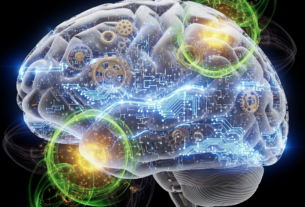Omega3 (EPA/DHA)
Maintaining optimal brain health is crucial for overall well-being, and certain nutrients play a significant role in supporting cognitive function. Omega-3 fatty acids, particularly EPA and DHA, have been shown to be essential for brain function and development. Omega3 (EPA/DHA) and Brain Health.

Research has demonstrated that these omega-3 fatty acids can support cognitive health and may help alleviate symptoms of depression and anxiety, highlighting the fish oil benefits for mental well-being.
Key Takeaways
- Omega-3 fatty acids are crucial for brain function and development.
- EPA and DHA support cognitive health and well-being.
- These nutrients may help alleviate symptoms of depression and anxiety.
- Fish oil benefits include supporting mental health.
- Maintaining optimal brain health is essential for overall well-being.
The Science Behind Omega3 Fatty Acids
Understanding the science behind omega-3 fatty acids is crucial for appreciating their role in brain health. Omega-3 fatty acids are a group of brain-boosting nutrients that are essential for various bodily functions.
What Are EPA and DHA?
EPA (eicosapentaenoic acid) and DHA (docosahexaenoic acid) are the two primary types of omega-3 fatty acids found in fish oil and krill oil. They play critical roles in heart health and brain function. While the body can convert ALA (alpha-linolenic acid) into EPA and DHA, this process is not very efficient, making direct consumption through omega-3 sources like fatty fish important.
The Structural Difference Between EPA and DHA
The structural difference between EPA and DHA lies in their molecular configuration, which affects their functions in the body. DHA is particularly important for brain health, as it is a major component of the brain’s cellular structure.
Essential Fatty Acids and Why We Need Them
Omega-3 fatty acids, including EPA and DHA, are considered essential fatty acids because the human body cannot synthesize them on its own. They must be obtained through diet or supplements. These fatty acids support various bodily functions, from heart health to brain development and function, highlighting their importance as brain-boosting nutrients.
Omega3 (EPA/DHA) and Brain Health: The Vital Connection
The vital connection between omega-3 fatty acids and brain health is rooted in their ability to support and protect brain cells. Omega-3 fatty acids, particularly EPA and DHA, are essential for normal brain function and development.
How Omega3s Integrate Into Brain Cell Membranes
Omega-3 fatty acids integrate into brain cell membranes, influencing membrane fluidity and facilitating communication between brain cells. This integration is crucial for maintaining healthy brain function. As Dr. Joseph Hibbeln, a renowned expert in nutritional neuroscience, notes, “Omega-3 fatty acids are fundamental to brain function and development.”
“Omega-3 fatty acids are fundamental to brain function and development.”
Dr. Joseph Hibbeln
The incorporation of EPA and DHA into brain cell membranes supports the structural integrity of these cells, ensuring proper neuronal function and synaptic plasticity.
The Blood-Brain Barrier and Fatty Acid Transport
The blood-brain barrier is a highly selective permeable barrier that separates the circulating blood from the brain’s extracellular fluid. Omega-3 fatty acids must cross this barrier to exert their effects on the brain. Research has shown that both EPA and DHA can cross the blood-brain barrier, although the mechanisms are complex and involve specific transport proteins.
Neuroinflammation and Omega3’s Protective Role
Neuroinflammation is a key factor in various neurological disorders. Omega-3 fatty acids have been shown to exert anti-inflammatory effects in the brain, potentially reducing the risk of cognitive decline. EPA and DHA have been found to modulate the production of pro-inflammatory cytokines, thereby protecting against neuroinflammation.
The protective role of omega-3 fatty acids against neuroinflammation is a critical aspect of their contribution to brain health. By mitigating excessive inflammation, EPA and DHA support a healthy brain environment.
Cognitive Benefits Across the Lifespan
The cognitive benefits of omega-3 fatty acids are evident across various stages of life, from infancy to old age. These essential fatty acids play a significant role in brain development, cognitive performance, and neuroprotection.
Brain Development in Infants and Children
Omega-3 fatty acids, particularly DHA, are crucial for brain development in infants and children. Research has shown that DHA supports the structural integrity of brain cells and promotes healthy cognitive development.
Key benefits for infants and children include:
- Enhanced cognitive development
- Improved attention and focus
- Better visual acuity
Cognitive Performance and Mental Clarity in Adults
In adults, omega-3 fatty acids support cognitive performance and mental clarity. They have been shown to improve memory, reduce symptoms of depression, and enhance overall brain function.
The potential benefits for adults are:
- Improved memory and cognitive processing
- Enhanced mental clarity and focus
- Reduced risk of cognitive decline
Neuroprotection and Cognitive Maintenance in Aging
As individuals age, omega-3 fatty acids continue to play a vital role in maintaining cognitive health. They help protect against age-related cognitive decline and may reduce the risk of neurodegenerative diseases.
Prevention of Age-Related Cognitive Decline
Studies have indicated that omega-3 supplementation can help prevent or slow down age-related cognitive decline. This is attributed to their anti-inflammatory properties and their ability to support brain health.
Impact on Neurodegenerative Conditions
Omega-3 fatty acids may also have a positive impact on neurodegenerative conditions such as Alzheimer’s disease. While more research is needed, existing evidence suggests that omega-3s could be a valuable adjunct therapy.
| Life Stage | Cognitive Benefits | Omega-3 Role |
|---|---|---|
| Infancy & Childhood | Brain development, cognitive development | DHA supports brain cell structure |
| Adulthood | Cognitive performance, mental clarity | Improves memory, reduces depression symptoms |
| Aging | Neuroprotection, cognitive maintenance | Protects against cognitive decline, supports brain health |

Research-Backed Mental Health Benefits
The mental health benefits of omega-3 fatty acids, particularly EPA and DHA, are backed by a growing body of research. These essential fatty acids have been found to play a crucial role in maintaining mental health across various stages of life.
Omega3s and Depression: The Evidence
Studies have shown that omega-3 fatty acids, especially EPA, may help alleviate symptoms of depression. A meta-analysis of clinical trials found that omega-3 supplementation significantly reduced depressive symptoms in individuals with major depressive disorder.
Anxiety Reduction and Stress Management
Omega-3 fatty acids have also been linked to reduced anxiety and improved stress management. Research suggests that these fatty acids can help mitigate stress-induced inflammation, a key factor in anxiety disorders.
Memory Enhancement and Learning Capacity
In addition to their mood-supporting effects, omega-3 fatty acids are believed to enhance memory and learning capacity. DHA, in particular, is known to support brain health by promoting the structure and function of brain cells.
| Mental Health Benefit | Omega-3 Fatty Acid | Research Findings |
|---|---|---|
| Depression Alleviation | EPA | Significant reduction in depressive symptoms |
| Anxiety Reduction | EPA/DHA | Reduced anxiety and stress-induced inflammation |
| Memory Enhancement | DHA | Improved brain cell structure and function |

In conclusion, the research-backed mental health benefits of omega-3 fatty acids are multifaceted, ranging from alleviating depression and anxiety to enhancing memory and learning capacity. Incorporating omega-3 rich foods or supplements into one’s diet may be a valuable step towards supporting mental health.
Optimizing Your Omega3 Intake
To reap the cognitive benefits of omega-3 fatty acids, it’s essential to understand how to optimize your intake. Omega-3 fatty acids are available through various food sources and supplements, each with its unique characteristics.
Food Sources: Fatty Fish and Plant-Based Options
Fatty fish such as salmon, sardines, and mackerel are rich in omega-3 fatty acids, particularly EPA and DHA. For those preferring plant-based options, algae oil is a direct source of DHA, while flaxseed and chia seeds contain ALA, a precursor to EPA and DHA.
Supplement Types: Fish Oil, Krill Oil, and Algae-Based
When choosing supplements, there are several types to consider. Fish oil supplements are widely available and contain EPA and DHA. Krill oil is another option, with potentially better absorption due to its phospholipid structure. For vegetarians and vegans, algae-based supplements offer a direct source of DHA.
Recommended Dosages for Brain Health Benefits
The optimal dosage of omega-3s for brain health benefits varies. Generally, a combined EPA and DHA dosage of 1000 mg to 2000 mg per day is recommended. However, it’s crucial to consult with a healthcare professional to determine the best dosage for individual needs.
Quality Considerations When Choosing Supplements
When selecting omega-3 supplements, consider the quality and purity of the product. Look for third-party testing and certifications from reputable organizations. Also, consider the sustainability and eco-friendliness of the brand. Top omega-3 brands prioritize these aspects, ensuring a high-quality product.
By understanding the different sources and types of omega-3 supplements and considering quality and dosage, individuals can make informed decisions to optimize their omega-3 intake for better brain health.
Conclusion
Omega-3 fatty acids, particularly EPA and DHA, play a crucial role in maintaining optimal brain health and cognitive function. As discussed, these essential fatty acids integrate into brain cell membranes, supporting the structural integrity and function of brain cells.
The neuroprotective properties of omega-3s have been shown to reduce neuroinflammation, promoting a healthy brain environment. This is vital for cognitive performance, mental clarity, and overall brain well-being across the lifespan, from infant development to aging.
To support brain health, it is essential to ensure adequate omega-3 intake through a balanced diet or high-quality supplements. Fatty fish, krill oil, and algae-based supplements are excellent sources of EPA and DHA. By prioritizing omega-3 intake, individuals can potentially enhance their cognitive function and maintain optimal brain health.
FAQ
What are the primary sources of omega-3 fatty acids?
The primary sources of omega-3 fatty acids are fatty fish, such as salmon and sardines, as well as plant-based options like flaxseeds and chia seeds. Omega-3 supplements, including fish oil, krill oil, and algae-based products, are also available.
What is the difference between EPA and DHA?
EPA (eicosapentaenoic acid) and DHA (docosahexaenoic acid) are both omega-3 fatty acids, but they have different structures and functions. EPA is primarily involved in reducing inflammation, while DHA is crucial for brain function and development.
How do omega-3 fatty acids support brain health?
Omega-3 fatty acids, particularly EPA and DHA, support brain health by integrating into brain cell membranes, crossing the blood-brain barrier, and exerting protective effects against neuroinflammation. They are also involved in brain development, cognitive performance, and neuroprotection.
Can omega-3 supplements help alleviate depression and anxiety?
Research suggests that omega-3 supplements, particularly those containing EPA and DHA, may help alleviate depression and anxiety by reducing inflammation and promoting healthy brain function.
What is the recommended dosage of omega-3 supplements for brain health benefits?
The recommended dosage of omega-3 supplements varies, but a typical range is between 250-500 mg of combined EPA and DHA per day. However, it’s essential to consult with a healthcare professional to determine the best dosage for individual needs.
How can I ensure the quality of omega-3 supplements?
To ensure the quality of omega-3 supplements, look for products that are certified by third-party organizations, such as the International Fish Oil Standards (IFOS) or the National Science Foundation (NSF). Also, choose products from reputable manufacturers that provide clear labeling and transparent sourcing information.
Are there any potential interactions between omega-3 supplements and medications?
Yes, omega-3 supplements may interact with certain medications, such as blood thinners, and may not be suitable for individuals with certain medical conditions. It’s essential to consult with a healthcare professional before taking omega-3 supplements, especially if you’re already taking medications or have a medical condition.
Can omega-3 fatty acids support cognitive function in older adults?
Yes, research suggests that omega-3 fatty acids, particularly DHA, may support cognitive function in older adults by promoting healthy brain aging and reducing the risk of neurodegenerative diseases.
See: Creatine May Help with Alzheimer’s and Cognitive Problems. 2025!
DENTICORE
Dental Solution
.




